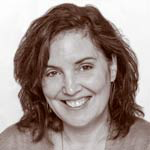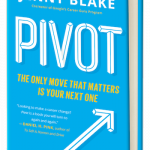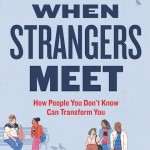 Americans are paying more than ever for college. A freshman enrolling in 2015 can expect to pay an average of $134,000 for four years of private college and graduate tens of thousands of dollars in debt. At the same time, new technologies and exponential increases in bandwidth are transforming how, when, and where we learn. Author Kevin Carey explores the intersection of these forces — and what it means for higher education — in his new book, The End of College: Creating the Future of Learning and the University of Everywhere.
Americans are paying more than ever for college. A freshman enrolling in 2015 can expect to pay an average of $134,000 for four years of private college and graduate tens of thousands of dollars in debt. At the same time, new technologies and exponential increases in bandwidth are transforming how, when, and where we learn. Author Kevin Carey explores the intersection of these forces — and what it means for higher education — in his new book, The End of College: Creating the Future of Learning and the University of Everywhere.
Carey thinks and writes about learning constantly — not only as the director of the Education Policy Program at the New America Foundation, but as the father of a 4-year-old girl. While he draws on his deep knowledge of higher education in The End of College, it’s a virtual biology class that serves as a recurrent touchstone in the book. Carey signed up for the MIT course through the virtual education portal edX, and was taught by Eric Lander, one of the primary leaders of the Human Genome Project. As Carey hustles to keep up with the coursework, he explores the contours of virtual learning and posits that our current higher-education system — which he calls a “monopoly” that has almost fatally deemphasized teaching — will evolve into what he calls the University of Everywhere. “The University of Everywhere,” Carey writes, “will solve the basic problem that has bedeviled universities since they were first invented over a millennium ago: how to provide a personalized, individual education to large numbers of people at a reasonable price.”
Carey’s book is kicking up debate in higher education and beyond, with some academics denouncing his ideas. We caught up with Carey to talk about how the University of Everywhere model might mesh with the meetings industry.
Your young daughter was partly the inspiration for this book. Had these ideas been percolating before she was born?
Yes, particularly the parts of the book that speak to the fact that many students are not successful in higher education, either because they don’t graduate or because they don’t learn what they need to learn. Or because they’re making a less-than-optimal series of choices about what they study, the kind of degree they get, and how much they choose to pay for it. I had also been interested in how information technology was and wasn’t changing the higher-education market, and the kinds of opportunities that were available to students. These have definitely been areas of interest of mine for a while.
You write that humans learn by analogy. Since the hybrid teaching/research-university model is so entrenched in how we think about higher education, what analogy might you use to describe this moment in its evolution?
Certainly, there is a question of if and when information technology will fundamentally challenge the dominant organizational model in higher education. I do make the parallel, which is not a perfect one, with the newspaper industry. Once the World Wide Web became a phenomenon in the mid-1990s, people looked at the newspaper business and said, “Oh, this is going to be disrupted by technology.” People in the newspaper business thought, Well, maybe, you know, but maybe not. They kept doing what they were doing, and 2008 was the best year ever in the newspaper industry, in terms of advertising revenue. Then the whole thing collapsed shortly thereafter, for all of the reasons that people had predicted 10 years earlier. It just took 10 years and a specific set of circumstances — the combination of maturing technology, external economic pressures, and the weaknesses of the underlying organization model that all came together and are pushing that industry to change.
There are parallels between media and education, though education is a lot more complicated. I think it’s worth asking, at what point will higher education be vulnerable to that sort of change?
There’s a certain serendipity that occurs when you bring people together in a classroom versus when you interact with them online. Did you experience those connections through your virtual MIT course? How might the bonds that form during a traditional college experience be replicated in online learning?
I think that most people live and learn best when they live and learn among other learners and mentors. But it also depends a lot on the student and the circumstances and the course and the subject. There is no way to generalize about people.
That particular course wasn’t designed to be in need of face-to-face interaction. It was an introductory-level course. Most of the education that happens in that class is a function of watching lectures and working on problem sets. I actually interviewed a half dozen of the MIT students who took the class in Cambridge [Massachusetts] to get a sense of their process. I was just curious whether I had missed something really important. By and large, I hadn’t. I mean, they learned the same way I did. Now, there were moments when they needed help working on the problems, which was a big part of the learning process. And their means of getting help was a little different than mine.
They were on the MIT campus. They could talk to someone who was in the dorm room or the hall. I had online forums where I could interact via texts, or writing with other people. So I wasn’t completely isolated in that sense. I think that’s a relatively small difference for that kind of class.
Now, there are other kinds of learning environments that very much depend on a more robust, organic, and ongoing level of interpersonal interaction. That is something that will become more and more possible as technology evolves over time. But is it better than being in the back of a lecture hall with a professor who doesn’t know who they are?
During a visit to MIT, you watch a young woman talk to two students who are projected in from another university. Soon after, you also watch some students engage in hands-on research. The afternoon seemed to draw the two poles of the current educational experience together.
[The students] were essentially [broadcast] on a high-definition video screen that was set up via a very robust connection, so that the people in the screen were the same size as the people who were talking. They were life-sized, and audio and video was very sharp and fast from the dedicated line running out to Stanford [University]. That’s not that different than if you and I were Skyping right now. It would be something like face-to-face, but not as close. If these things that are essentially a function of bandwidth and memory — well, that stuff is all still getting a lot better, a lot faster.
Many of us can think of a teacher or two who influenced our lives. I wondered how that might look in the University of Everywhere. Do you think in-person mentorship is a necessary loss with online learning?
No, I don’t think so. Human relationships can form in many different environments, not only environments in which you’re both in the same place. Again, I think a big part of higher education in the future will be people living with other people. That won’t change. I just think that the organizational model and the economic model underlying those places can and will change pretty profoundly in ways that I hope are both less expensive and more effective from an educational standpoint.
In the world of meeting professionals, there’s a certification called the CMP. It requires experience as well as coursework, an exam, and continuing education. It’s outside of the university system but carries a lot of weight in the world of meetings. Do you think these sorts of professional training programs are ahead of the curve when it comes to education? Or will they be impacted by this trend as well?
When we think of college, we tend to think of places and sort of brand names. We have a pretty circumscribed mental universe of what higher education can be — institutions that look a certain way, behave a certain way, and offer certain kinds of credentials. But there’s an awful lot more education in people’s lives that happens other than what happens when they choose to go to college. The fact is, there are these robust systems of credentialing popping up somewhat organically in different professions, responding to needs in the market. If anything, this at the very least shows that we ought not be limited to traditional, time-defined degrees — four-year degrees, two-year degrees, etc., because those kinds of credentials are the only kind that really are subsidized publicly, either directly or indirectly. The people that provide them have a big advantage, and that in many ways distorts the nature of the education market. I think we’re going to see more, not less, of different kinds of credentials that make sense given how people need to learn, and also the kinds of credentials that employers want and require.
How does this new model of education mesh with the educational side of meetings and conferences?
I think a good conference or meeting can be an educational experience that, in some ways, can be as profound and effective as taking a class. The way that we have organized our system of credentials, only classes count [for credit]. I’m not sure that that makes any sense. One of the things I talk about in the book is giving people more control over their educational identity, and allowing people to customize, define, and present the things that they’ve learned in a way that makes sense to them and makes sense in their labor market and their profession. I could imagine circumstances under which attending a meeting counts as evidence of learning in the same way that taking a class does. That would be a positive thing.
At meetings, sometimes you’ll hear someone present on something that’s outside your expertise, who offers a whole different perspective. That can be really great. There’s no substitute for the human connections that you make sometimes, and people that you’ve come to know a little more abstractly from their work. You walk away [from the meeting] with a different kind of relationship with them than you walked into it.




